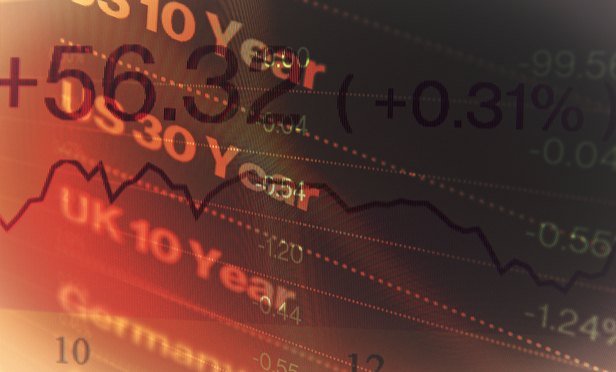susilangs.blogspot.com

1. Why Direct Bonds — Price
Direct bonds cost less than actively managed bond funds, Rekenthaler states. He notes the real expenditure is the “unstated difference between what the broker paid for the bond and what it charges for its sale.” The broker’s profit margin typically is 1% for higher grade bonds. That may be double what a bond fund’s expense ratio is, but that is levied annually, he says, which means for 10-year bond funds, that would be a 5% cost over a decade vs. the 1% for bonds held until maturity.
(Photo: Shutterstock)

2. Why Direct Bonds — Assurance
A buyer of direct bonds lock in their yield, says Rekenthaler, as “prices will vary, but those changes are immaterial if the investor holds the bonds until they mature; and if the bonds are noncallable, they won’t disappear.” However, a bond fund yield will fluctuate and its eventual selling price, he states, cannot be known. Further, if the fund company opts to liquidate or merge the fund, “the investor no longer will own what [they] bought,” he says.
(Photo: Shutterstock)

3. Why Direct Bonds — Initial Payouts
“Owning bonds directly likely provides higher upfront yields,” Rekenthaler states. Typically, however, buyers will “pocket the cost advantage, leading to about half a percentage point of extra yield,” when compared to a typical actively managed bond fund. Also, if interest rates decline, the buyer is locked into higher rates as opposed to a fund that will be “forced to purchase lower-paying securities. He warns the opposite is true: if rates rise.
(Photo: Shutterstock)

4. Why Bond Funds — Convenience
Holding a bond fund means covering a lot of territory, he says, for example a fund can own intermediate-term, high-grade securities and have predictable performance, within a couple percentage points of other funds as well as indexes. “Buy one and forget about it,” Rekenthaler states. He says those, especially retirees, who “seek more from their bonds” may need a boost with other bond funds, ie. junk-bond funds. He says a “single fund may no longer suffice. However, the principle persists: Adding funds is easier than adding bonds.”
(Photo: Shutterstock)

5. Why Bond Funds — Avoiding Event Risk
Although a bond fund may be terminated by its sponsoring firm, credit downgrades won’t much affect diversified portfolios, but can be damaging to those who have direct bonds, Rekenthaler says. That fact alone can bring “peace of mind” to those who own bond funds, he says.
(Photo: Shutterstock)
Advertisement

6. Why Bond Funds — Later Payouts
Sometimes overshadowed by the above attributes of bond funds are “their habit of growing capital, which ultimately increases their payouts,” Rekenthaler says. He notes that a directly held bond $100,000 with a 1% markup purchased in December 2009 might end up with a 2.79% yield or annual payout of $2,707.
However, a bond fund of the 10 largest intermediate core and core-plus funds purchased in 2009 would have grown over 10 years from $100,000 investment to $142,890, or an annual payout of $3,259, or 21% above directly held bonds. Of course, that return depends on the bond fund.
(Photo: Shutterstock)
The question of whether to own direct bonds or bond funds is best answered by looking at the pros and cons of both investments, at least according to Morningstar Vice President of Research John Rekenthaler.
In in a recent column, Rekenthaler reviews the positives and negatives of each type of product, leaving the decision of what works best for a portfolio to the advisor and/or investor client.
Here are three reasons to own bonds directly, as well as three reasons to own bond funds.
Related: 6 Financial Planning Tips to Close Out the Year of COVID-19
Let's block ads! (Why?)
"direct" - Google News
December 03, 2020 at 04:32AM
https://ift.tt/3obaIDg
Direct Bonds vs. Bond Funds: 6 Reasons to Love Both - ThinkAdvisor
"direct" - Google News
https://ift.tt/2zVRL3T
https://ift.tt/2VUOqKG
Direct
Bagikan Berita Ini




















0 Response to "Direct Bonds vs. Bond Funds: 6 Reasons to Love Both - ThinkAdvisor"
Post a Comment